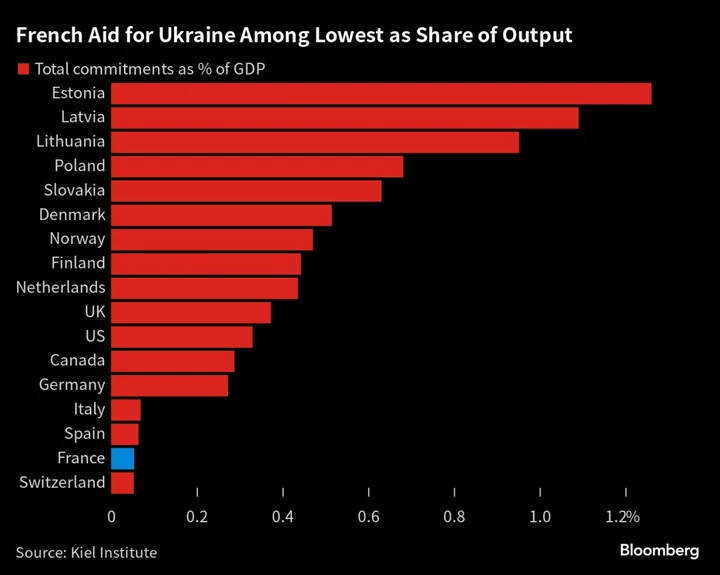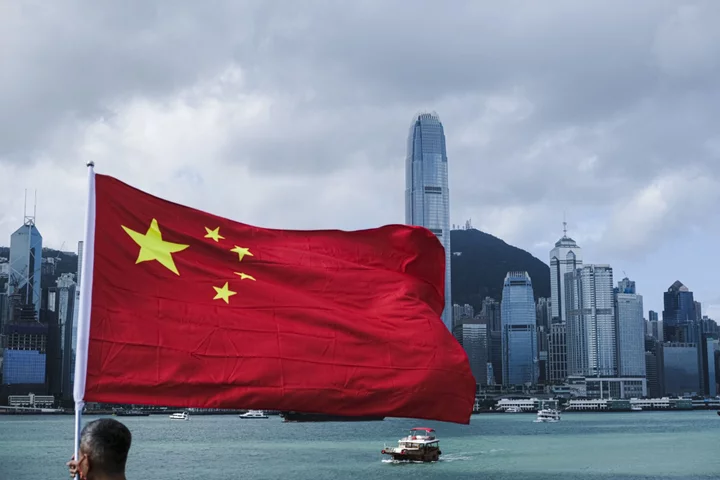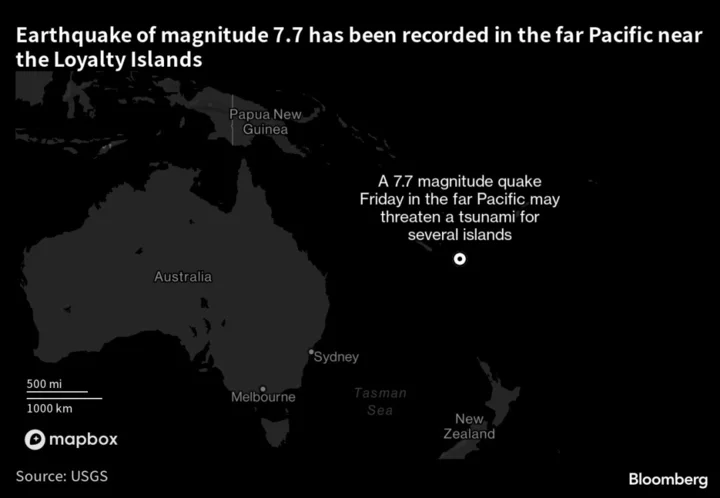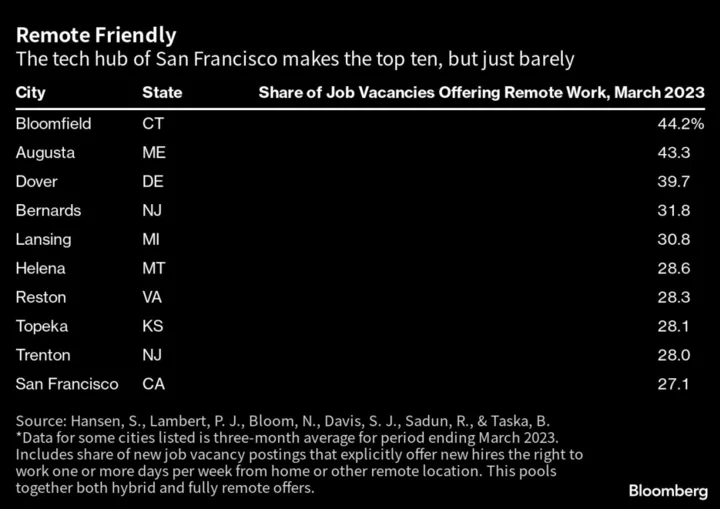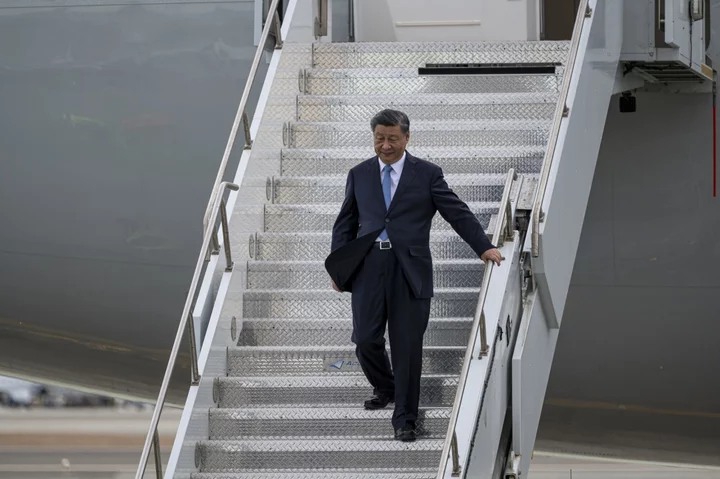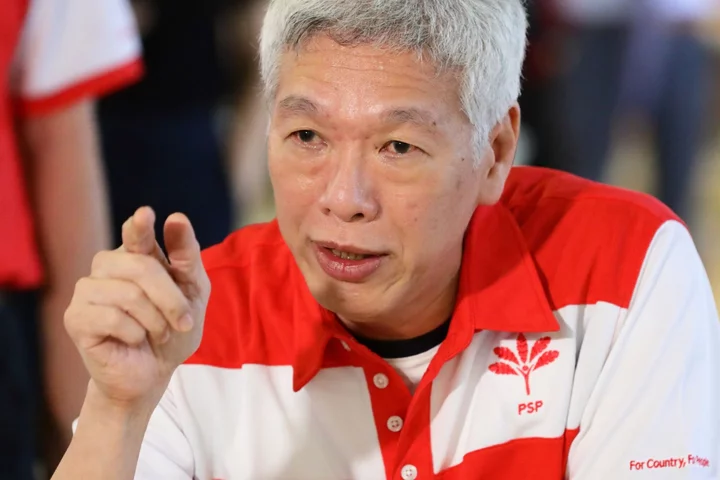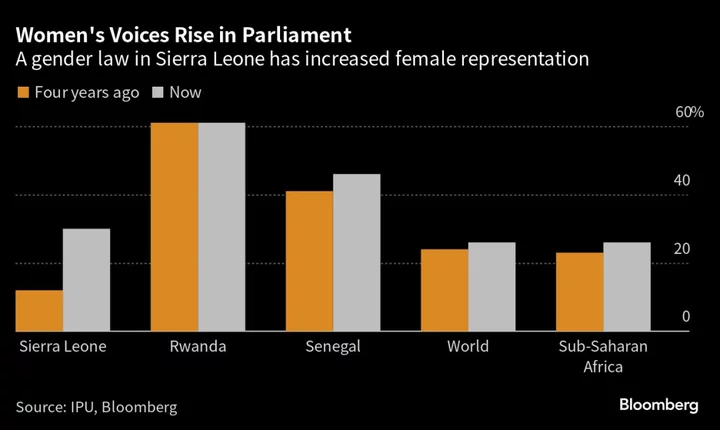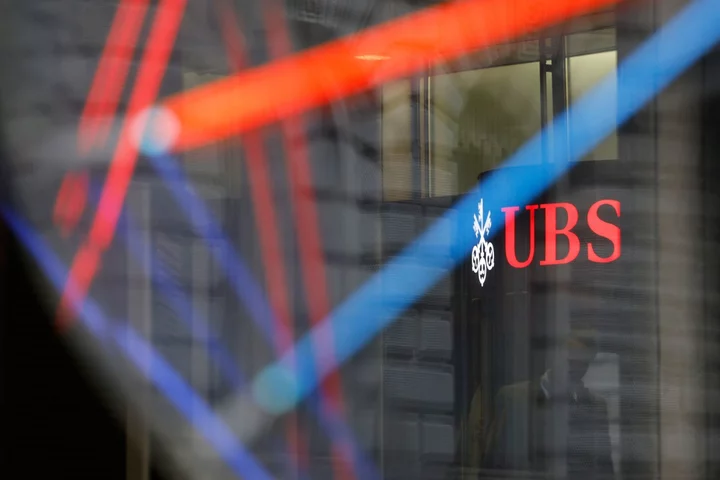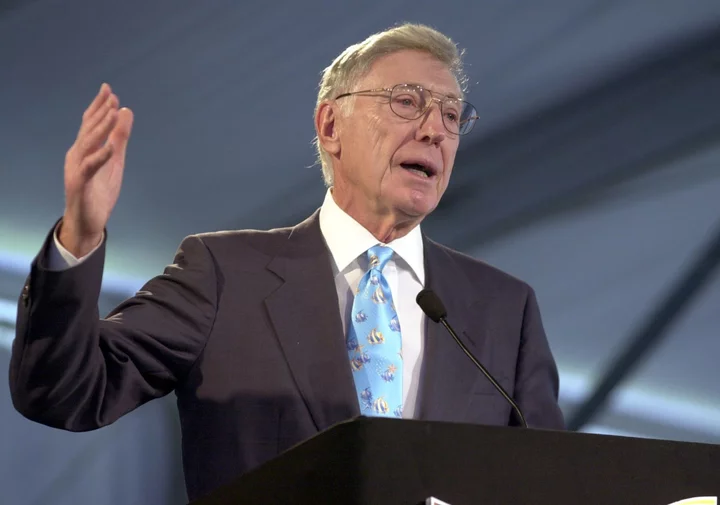Around the time of Yevgeny Prigozhin’s brief uprising against the Russian government last month, a French warship was making its first trip to the Baltic.
The frigate Auvergne docked in Helsinki on June 24 in a show of support to NATO’s newest member, Finland. The deployment just 190 miles (300 kilometers) from Putin’s home city of St. Petersburg might also have been intended to demonstrate France’s renewed enthusiasm for the western alliance after decades of ambivalence.
As leaders of the North Atlantic Treaty Organization prepare to gather in Vilnius next week, French President Emmanuel Macron is trying to make up for lost time.
Macron has backed away from his famous jibe about NATO “brain death” since the Russian invasion, which sharpened the focus on the alliance’s role in protecting other European nations. Now, as he tries to move on from the shocking riots at home this month, he’s aiming to speed the eastward expansion of both NATO and the European Union by clearing a pathway to membership for Ukraine.
In a speech last month, the once-skeptical president abandoned France’s longstanding resistance to extending the western security umbrella and called for tighter coordination between NATO and the EU on defense.
“The question isn’t whether or not we should expand, or even when we should do it — to me, it’s as quickly as possible — but how we should do it,” Macron told a conference in Bratislava on May 31.
A French diplomat said the 45-year-old president has understood he needs to be on the right side of history. But Macron has work to do in that respect.
“The message is important,” said Rym Momtaz, a researcher for International Institute for Strategic Studies. “We’ll have to see if this message translates into a new strategic direction.”
Read More on France’s Relationship With NATO:
France and Germany Are Split Over Ukraine’s Appeal to Join NATOMacron Says Ukraine Deserves to Be in NATO, Just Not Right NowTrump’s Neglect of U.S. Allies Is Killing NATO, Macron SaysHow Trump Left Macron Doubting the U.S. Commitment to NATO
For years, Macron embraced his role as heir to French leaders like Charles De Gaulle and Jacques Chirac who kept their distance from the US-led NATO alliance and, in Chirac’s case, dismissed the concerns of eastern Europe. Macron rolled out the red carpet to Vladimir Putin in 2017 and provoked outrage just before the invasion when he mentioned the possible “Finlandization” of Ukraine - renouncing the prospect of EU or NATO membership to appease Moscow.
Many of the officials who spoke to Bloomberg on condition of anonymity were surprised by the apparent conversion and some were skeptical.
One senior European official described the speech as hot air. Another scoffed at Macron’s plans to broker peace negotiations alongside China, recalling, pointedly, his earlier failed attempts to persuade Putin not to attack Ukraine. A third suggested that Macron had simply realized that his efforts to engage Putin hadn’t worked.
But others insisted that it’s significant all the same. By shifting to support two of Eastern Europe’s biggest demands — tighter coordination with NATO and a clear roadmap to membership for Ukraine — Macron changes the calculus within the EU just at the moment when its center of political gravity is shifting eastward.
One diplomat from eastern Europe said that positioning France alongside Ukraine’s fiercest supporters, Poland and the Baltic states, helps to fill the gap left by German Chancellor Olaf Scholz’s more cautious approach. A German official agreed that it was a major shift that created a new alliance between France and the eastern states at a moment of mounting friction between Paris and Berlin.
“The Franco-German relationship is still there, it’s always fundamental, but it shouldn’t be an exclusive relationship,” said Benjamin Haddad, a lawmaker from Macron’s party who’s worked for the Washington-based think-tank Atlantic Council. “We need other partners, and smaller countries are actually a vector to increase our power and our influence.”
Macron has matched his public rhetoric with lobbying behind the scenes for Ukraine to be allowed to begin the EU accession process, diplomats said, in contrast to his reticence over Albania and North Macedonia in 2018.
French diplomats have also been engaging at lower levels with their eastern counterparts, and that has been noted, one of their counterparts said, while the administration is looking into adding more diplomatic staff in eastern Europe. French officials say they are confident Kyiv will meet the conditions to start EU accession talks at the end of the year, although they insist Ukraine won’t get special treatment.
Of course, the prospect of incorporating Ukraine has spurred talks on more fundamental changes to the way the EU operates, to streamline its decision-making process and reduce the potential for individual members to hold the rest to ransom. That process in itself will take years and the outcome is highly uncertain.
In a similar way, the Russian occupation of large swathes of southern and eastern Ukraine hangs over the debate about NATO membership.
European diplomats say that simply beginning the accession process will give impetus to economic reforms in Kyiv and a clear pathway to joining NATO would provide a boost to Ukrainian morale while sending a message to the government in Moscow, which is still trying to restore confidence after Prigozhin’s mutiny.
Macron has called on Europeans to provide Ukraine with bilateral security guarantees at the NATO summit, to offer the country protection in the period before NATO membership can be secured. He says that could be modeled on the way the US supports Israel.
France has also agreed to send some of the Scalp missiles developed with the UK, also known as Storm Shadows, to Ukraine, according to a French diplomat, while a European colleague gave Macron credit for being one of the first leaders to offer heavy armored vehicles and helping to shift that debate.
There is much more for France to do if Macron wants to convince the doubters that he’s serious about his change of stance.
French aid to Ukraine so far is equivalent to 0.3% of GDP, according to the Ukraine Support Tracker from the Kiel Institute for the World Economy. Germany’s is equivalent to 0.5% of its output while Poland’s is 0.9%.
One unique card that Macron has is France’s nuclear arsenal. Since the UK left the EU, Paris is the only nuclear power in the bloc and the continent largely relies on the US nuclear umbrella.
Last year, Macron handled that issue clumsily, suggesting that France would not respond in kind if Europe was to be hit by a nuclear weapon and then backtracking.
Now the president’s team is discussing whether to open up the issue of how French nuclear weapons could help protect the rest of the continent, according to one person familiar with French government thinking, and looking at how that could contribute to Ukraine’s security guarantees.
“Macron understands the gravity of the historical moment NATO is facing and wants to pay a central and constructive role,” said Momtaz. “Now, he needs to give this change in his public posture some concrete signs.”
--With assistance from Milda Seputyte and Alex Wickham.
Author: Ania Nussbaum, Alberto Nardelli and James Regan

